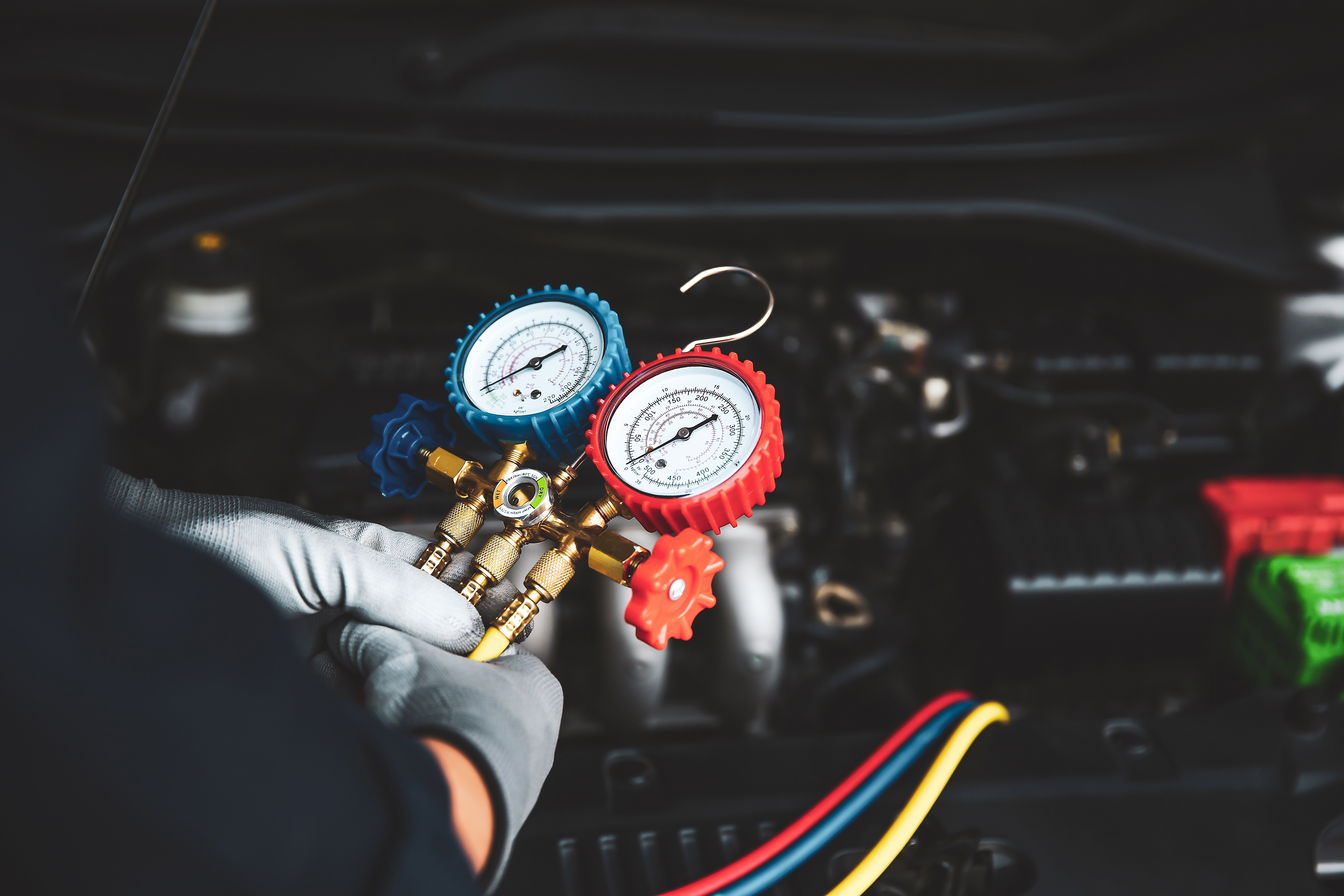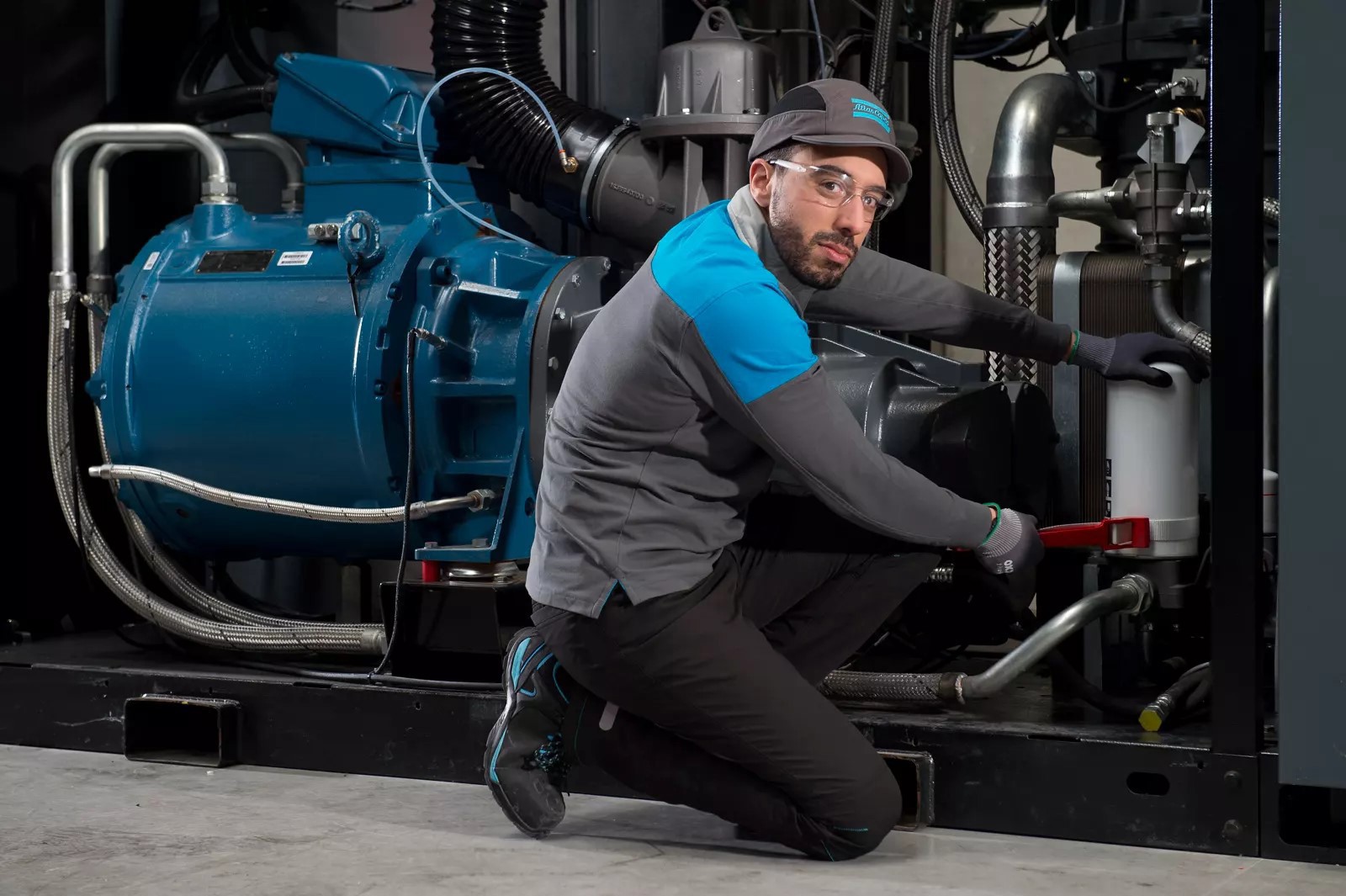
Maintaining and regularly replacing air filters is crucial for ensuring your air compressor operates at peak efficiency. Dirty or clogged filters not only reduce the performance of your compressor but can also damage internal components, lower air quality, and increase operational costs. Regular air filter upkeep extends equipment lifespan and ensures optimal functionality. Let’s review how to maintain and replace your filters to keep your equipment running optimally.
Why Air Filter Maintenance is Essential
Air filters play a critical role in air compressor systems by capturing dust, dirt, water, microorganisms, oil, and other airborne contaminants. Proper filtration prevents these particles from entering the system, ensuring the compressor is operating efficiently and wear and tear is minimized. Keeping on top of air filter maintenance results in lower energy costs, reduced downtime, and prolonged equipment life, saving you time and resources in the long run.
Steps for Cleaning and Maintaining Your Air Compressor Filter
Regularly cleaning and maintaining your air compressor filters prevents the system from becoming inefficient and potentially damaging the unit. Recognizing when your filter needs cleaning or replacement is important, and following correct procedures ensures performance remains consistent and reliable. Here's how you can effectively manage your air filter maintenance process:
When Should You Clean or Replace Air Filters?
It’s important to recognize signs indicating your air filter needs attention, including a reduction in airflow, a pressure drop in a system, overheating, or unusual noises from the compressor. While maintenance schedules vary, filters should typically be inspected at the following cadence and adjusted based on usage and environmental conditions:
- Monthly — Inspect the filters each month and review for damage or clogs
- Quarterly — On a seasonal basis, clean the filters to maintain top performance
- As Needed Replacement — If air quality or air compressor performance is still poor after cleaning, you need to replace the filters
How to Clean Air Filters

To clean your air compressor filters safely and effectively, follow these guidelines:
- Check the manual for specific instructions first.
- Turn off your compressor and disconnect it from its power source.
- Remove the air filter housing and carefully extract the filter.
- If lightly soiled, use a vacuum or compressed air to gently clean away debris.
- If the filter can be washed, clean it with warm soapy water. rinse and dry thoroughly before reinstalling.
- For heavily soiled or damaged filters, replacement is recommended.
- After cleaning, reinstall the cleaned filter securely.
- Reconnect the compressor and test its operation to ensure proper airflow and efficiency.
After you have cleaned the filter and tested the system, you are clear to resume operations. If the filter is excessively worn, dirty, damaged, or if your equipment is experiencing reduced air flow, odd noises, or is less efficient, it may be time to replace the filter.
How to Replace Air Compressor Filters
Replacing air compressor filters periodically is essential for maintaining optimal compressor performance. Using the correct replacement filter and installing it properly helps prevent air leaks and ensures that your equipment operates efficiently. Follow the guide below to help you navigate the replacement process:
Select the Right Replacement Filter
Selecting a compatible, high-quality replacement filter is critical for successful operations. Different compressor systems require specific filter types, such as oil-lubricated or oil-free filters, tailored to industry standards. AirCompressors.com offers an extensive selection of filters suitable for diverse industrial and commercial applications.
Not sure which filter you need? Contact AirCompressors.com to speak with a specialist.
Step-by-Step Guide to Replacing a Filter
Safely and correctly replace your air compressor filter by completing the following:
- Shut down and fully depressurize your compressor.
- Carefully remove the old filter, inspecting it for signs of damage or excessive debris buildup.
- Install the new filter securely, ensuring a tight fit to prevent air leaks.
- Restart your compressor.
- Monitor its performance closely and verify that the new filter is functioning effectively.
Testing the pressure of the air compressor is an important step that should not be missed. Leaks, misalignment, and incorrect sizes can make your air compressor work harder and lead to an increase in energy costs.
How AirCompressors.com Supports Air Compressor Maintenance
AirCompressors.com provides support before, during, and after the sales process, ensuring you have what you need to ensure your air compressors run smoothly. Our extensive inventory includes a wide range of air compressors, air filters and dryers, as well as accessories and lubricants to keep your equipment running smoothly and make maintenance a breeze. Browse our full selection of products on AirCompressors.com and review our resource documents to keep your systems running optimally.
Turn to AirCompressors.com for Reliable Maintenance Solutions
Regular maintenance is vital to preventing equipment damage and preserving compressor efficiency. AirCompressors.com is your trusted source for:
- High-quality air filters suitable for various compressor models
- Complete part kits and essential tools
- Detailed how-to guides and educational resources
- Expert customer service support and consultation for optimal compressor care and upgrades
Explore our extensive selection of filters and other accessories or contact our team for expert advice and personalized support. We are here to help!

